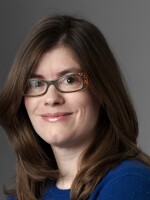Space shuttle Endeavour is scheduled to blast off Friday afternoon on its final mission before becoming a museum exhibit out in California.
President Obama is expected to be there, becoming only the third sitting president to view a human spaceflight launch. Rep. Gabrielle Giffords (D-AZ) will also attend — she was shot in the head earlier this year, but her doctors have OK'd her trip to see her astronaut husband, Commander Mark Kelly, launch into space.
The shuttle's blastoff will also be watched by more than the usual number of physicists. That's because Endeavour will be carrying up a $2 billion particle physics detector known as the Alpha Magnetic Spectrometer, or AMS.
The AMS will be mounted onto the International Space Station, where, for a decade, it will collect cosmic rays — charged particles that zoom through space.
The AMS was designed to search for primordial antimatter created during the Big Bang, and the mysterious dark matter that makes up much of our universe.
The device is the size of a bus and looks a lot like an old-fashioned satellite, sort of like Sputnik, says physicist Drew Baden of the University of Maryland, who got to see it as it was being assembled in a clean room at the CERN physics lab in Europe.
If you find what you predicted, it's not interesting. The interesting thing is to destroy the current idea, to find something new.
"It was just beautiful," Baden says. "I thought it was beautiful, just thinking about the engineering that went into it and the amount of time it took, and the planning. Wow! That human beings could accomplish this kind of thing is really impressive."
'Real Science On The Space Station"
One human being in particular is behind this project: Nobel Prize-winning physicist Samuel Ting of the Massachusetts Institute of Technology, who has been pushing to make it happen for more than 16 years.
After NASA agreed to launch this detector, Ting went out and raised money to build it with the help of hundreds of researchers in more than a dozen countries.
Ting did not give up even in the wake of the space shuttle Columbia disaster, when NASA officials said that things had changed and they had to cancel this flight. And in the end, NASA reinstated the flight.
Ting said no one knows what this instrument might discover.
"I mean, if you find what you predicted, it's not interesting," he said. "The interesting thing is to destroy the current idea, to find something new."
But some physicists aren't expecting the AMS to produce any breakthroughs.
"I just think that this experiment was a tremendous expenditure of money that wasn't justified," says Gregory Tarle, a physics professor at the University of Michigan in Ann Arbor. He says the AMS was built without first getting the widespread support that big projects normally receive from the physics community.
And while the AMS was originally planned to search for primordial antimatter, Tarle says recent research shows that there's no way it will find any.
"The justification for doing this kind of physics has pretty much evaporated," says Tarle, who adds that while the AMS will also look for evidence of dark matter, its results won't be definitive.
Asked specifically about Tarle's criticisms at a NASA media briefing, Ting responded that he had gone to school at the University of Michigan and that it used to have a good football team, but recently the team had gone to pot. "Last year they have changed their coach. I have no other answers," Ting said, drawing laughter from those attending the conference.
Despite the controversy, the AMS will do solid, state-of-the-art science, says Sheldon Glashow, a Nobel Prize-winning theoretical physicist at Boston University.
"It will finally be true that there will be real science on the space station, something that has never been true before — it's been like high school experiments and a bunch of silliness," Glashow says.
Glashow notes that Ting got the Nobel after making a "miraculous" discovery back in 1974, early in his career. "And I have every reason to believe that he's going to make another one now toward the end of his career," Glashow says. "I'm thrilled for him."
Copyright 2022 NPR. To see more, visit https://www.npr.org. 9(MDAzMjM2NDYzMDEyMzc1Njk5NjAxNzY3OQ001))







